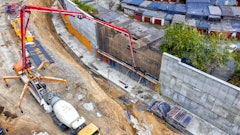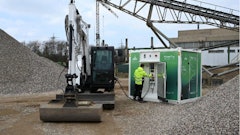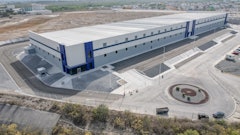In Atlantic Coast Mechanical v. R.W. Allen Beers Construction, 592 S.E.2d 115 (Ga. 2003), the Georgia Court of Appeals reversed a trial court that, relying in part on a no damages for delay clause, had thrown out a subcontractor's suit that sought compensation for increased labor costs allegedly incurred due to the actions of the general contractor (GC).
In short, even though the parties' subcontract barred delay claims, and even though the general contractor had the right to sequence the work and modify the schedule, the Court of Appeals interpreted the subcontract to only bar additional compensation for delays and hindrances the subcontractor could have foreseen.
The case
In May 1996, Atlantic Coast Mechanical ("subcontractor") was hired by Beers Construction ("general contractor") to perform heating, ventilation, air conditioning, and plumbing work for a construction project called the 'Children's Medical Center' in Augusta, GA. In April 1998, the subcontractor submitted a request for an equitable adjustment (REA) for increased labor costs it claimed to have incurred because of the GC's disruptions. The general contractor denied the claim and asked the subcontractor to withdraw its REA.
Instead, the subcontractor sued, claiming that the general contractor had forced it to perform work in a "radically different manner, method, and sequence" than it had originally contemplated when bidding the job.
The subcontractor claimed that it was unable to rough-in overhead piping and equipment with rolling scaffolds and manlifts, as it originally planned, because the concrete work was late and out of sequence. Further, when the work areas finally became accessible, the subcontractor alleged that the general contractor required it to accelerate by demanding that it double the size of its crews and work those crews overtime.
At the same time, the general contractor allegedly hampered the subcontractor's progress by instructing other trades to stockpile drywall and other materials in the subcontractor's work areas. The subcontractor claimed that the general contractor's actions resulted in a significant increase in labor costs, which it sought to recoup in its REA.
The court's decision
The Georgia Court of Appeals found that the subcontract did not bar the subcontractor's claims — despite clauses in the subcontract giving the GC the right to set the schedule for the work and barring the subcontractor from claiming delay damages.
The court allowed the claim to proceed because it found the clauses applied only to delays and hindrances the subcontractor could have foreseen when it entered into the subcontract, and were silent on the subcontractor's right to additional compensation for costs caused by the GC's actions.
Impact on contractors
Atlantic Coast Mechanical illustrates the tendency of courts to carve out exceptions to the enforceability of "no damages for delay" clauses. An exception many courts rely upon to permit delay claims, notwithstanding a no damages for delay clause, involves any claim arising out of delays or events not contemplated by the parties at the time of contract formation. So, even in the face of a contract provision that shifts the risk of certain delays onto the party who is delayed, that party may still have the ability to prosecute and recover on claims arising out of unforeseen delays.
Gerald I. Katz is an attorney specializing in construction law throughout the United States with Katz & Stone LLP, Suite 600, 8230 Leesburg Pike, VA 22182.



























